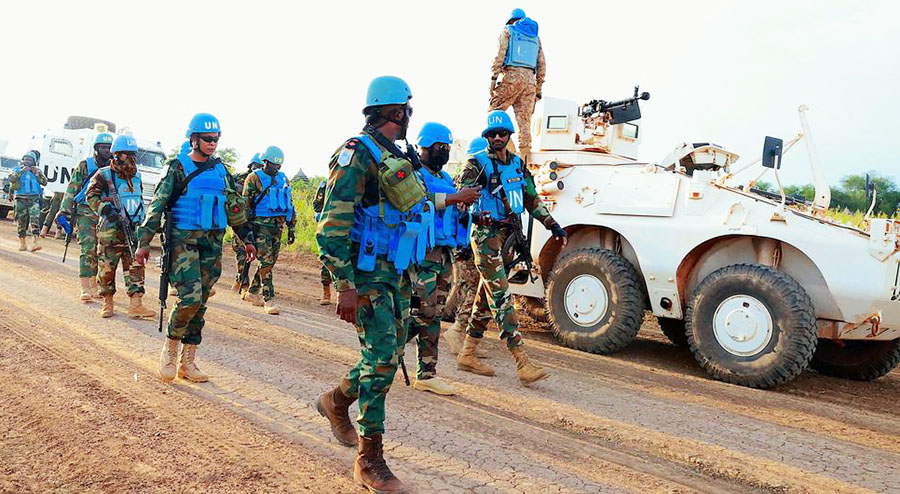
UN expert calls for UN peacekeepers to protect aid convoys
Moatinoon
A UN expert has proposed routinely deploying UN peacekeepers to protect aid convoys from attacks in places like Gaza and Sudan.
Michael Fakhri said UN armed forces are now required to ensure food reaches vulnerable populations, with starvation increasingly used as a weapon of war.
"I call on the UN General Assembly to mandate peacekeepers to escort humanitarian convoys," said the UN Special Rapporteur on the right to food.
Fakhris call for intervention comes amid growing concern about the increasing targeting of aid convoys in Africa and the Middle East.
The UN human rights office expressed "deep alarm" at the increasing number of attacks, warning that any attempt to obstruct aid or target humanitarian workers constitutes a war crime.
Recently, humanitarian convoys have been deliberately targeted in the Central African Republic, as well as in Haiti in the Caribbean.
Earlier this month, a 15-truck UN aid convoy was attacked on its first attempt to reach the besieged Sudanese city of El Fasher in a year, killing five people.
Fakhri said that without coordinated international intervention to protect aid deliveries worldwide, humanitarian organizations will eventually cease distribution, creating a "miserable reality."
He added that the UN Security Council, which passed a resolution in 2018 condemning the unlawful denial of aid to civilians, has become ineffective due to members continued vetoes against aid efforts.
"When the Security Council is blocked by its veto, the General Assembly has the authority to call in peacekeepers," he said.
He added that such a move could be swiftly implemented with a majority vote of the 193 member states, a threshold Fakhri predicted would be easily reached.
"What the General Assembly will do is politically implement what countries have already committed to."
Delivering aid in Sudan has become increasingly difficult, with key roads being blocked or targeted, and aid facilities and workers being targeted.
“We are deeply concerned about the deliberate obstruction of aid trying to reach civilians from Gaza to Sudan and elsewhere, including through attacks on aid convoys,” said Jeremy Laurence, spokesperson for the UN High Commissioner for Human Rights in Geneva.
“It is alarming that these practices appear to be on the rise. Deliberately obstructing relief supplies to starve civilians as a method of warfare is a war crime,” Laurence said.
Meanwhile, Human Rights Watch described the increase in the frequency and severity of attacks on humanitarian workers as “horrifying.”
“Last year set a grim record for the number of humanitarian workers killed in conflict zones—more than 360—mostly in Gaza, but also in Sudan, Ukraine, and elsewhere,” said Louis Charbonneau, UN director at Human Rights Watch.
"Whoever controls aid has a great deal of power in a given area and in a given conflict," Fakhri added.
He warned that if attacks continue, traditional aid distributors, such as the United Nations, could be forced to surrender.
Source: theguardian.com

